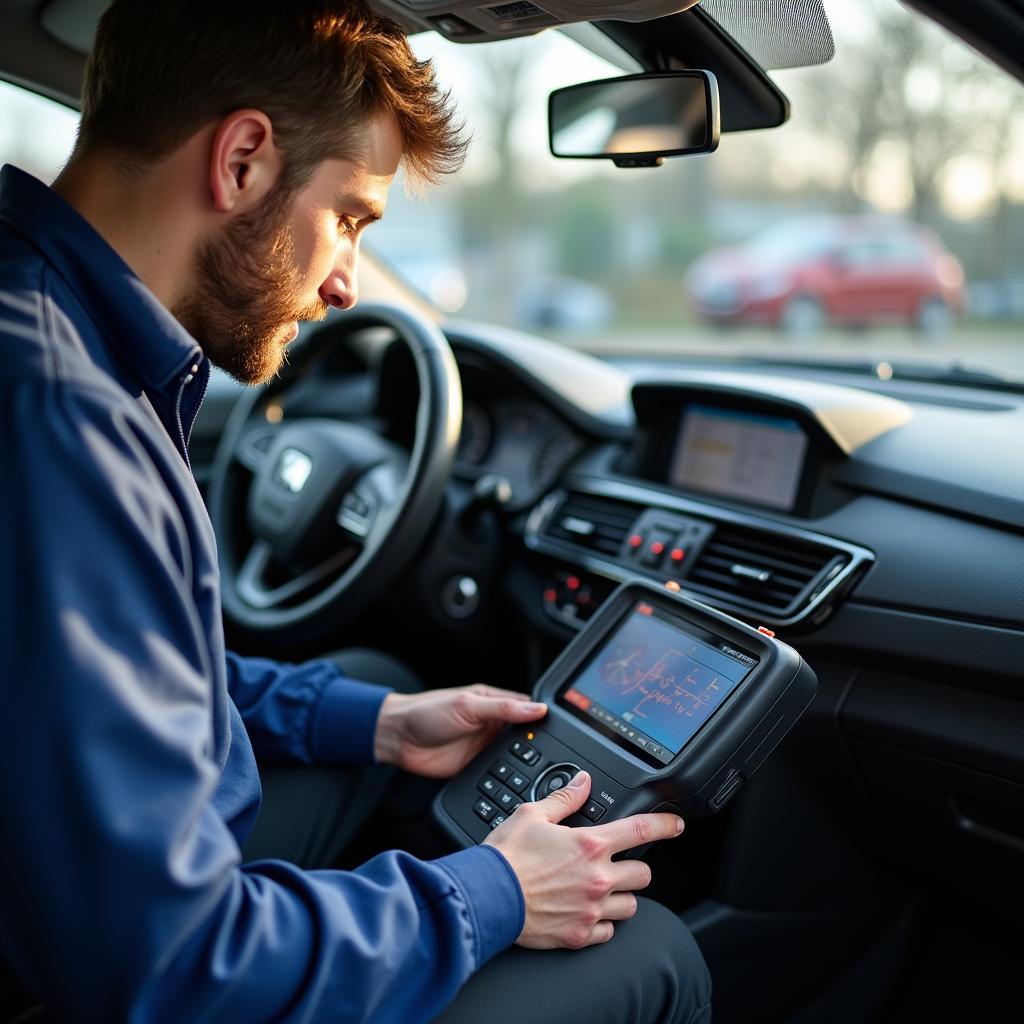Car Air Con Diagnostics is a vital part of keeping your vehicle cool and comfortable, especially during the hotter months. A properly functioning air conditioning system not only provides comfort but also contributes to safe driving by preventing driver fatigue caused by excessive heat.
Understanding the Importance of Car Air Con Diagnostics
Car air conditioning systems are intricate networks of components working together to cool and dehumidify the air inside your vehicle. When one or more of these components malfunction, it can lead to reduced cooling efficiency or a complete system failure. This is where car air con diagnostics come in.
Car air con diagnostics involve a series of tests and inspections performed by qualified technicians to identify the root cause of any air conditioning problems. These diagnostics can reveal issues such as:
- Refrigerant leaks
- Compressor malfunctions
- Electrical problems
- Faulty sensors
- Blocked condenser fins
The Benefits of Regular Car Air Con Diagnostics
Regular car air con diagnostics, much like regular servicing for other vehicle systems, offer numerous benefits:
- Early Problem Detection: Identifying and addressing minor issues early on can prevent costly repairs down the road.
- Improved Fuel Efficiency: A well-maintained air conditioning system puts less strain on your engine, potentially improving your fuel economy.
- Extended System Lifespan: Regular maintenance can help prolong the life of your car’s air conditioning system.
- Enhanced Comfort: Enjoy consistent, comfortable cooling throughout the year.
What to Expect During Car Air Con Diagnostics
 Technician Performing Car AC Diagnostics
Technician Performing Car AC Diagnostics
When you take your car in for air con diagnostics, a technician will typically perform the following:
- Visual Inspection: Checking for any obvious signs of damage, leaks, or loose connections.
- System Pressure Test: Using specialized gauges to measure the pressure of the refrigerant in the system.
- Leak Detection: Employing various methods to pinpoint refrigerant leaks, such as electronic leak detectors or dye tests.
- Component Testing: Examining individual components like the compressor, condenser, and evaporator for proper function.
- Control System Scan: Utilizing diagnostic for car computer to identify any electrical faults or sensor issues.
Common Car Air Con Diagnostic Trouble Codes
Modern vehicles often display diagnostic trouble codes (DTCs) related to the air conditioning system. These codes can provide valuable clues to the underlying problem. Here are a few common car air con DTCs:
- B1910: Indicates a problem with the A/C pressure sensor circuit.
- B1911: Suggests an issue with the A/C evaporator temperature sensor circuit.
- B1912: Points to a fault in the A/C blower motor control circuit.
Understanding these codes can help you communicate effectively with your mechanic and make informed decisions about repairs.
Choosing the Right Car Air Con Diagnostic Tool
(https://diagfixpro.com/car-diagnostic-scanner-ebay/). The image should emphasize the variety of tools available to suit different needs and budgets.]
For those who prefer a DIY approach, various car air con diagnostic tools are available on the market. These range from simple pressure gauges to more advanced electronic scanners that can read and clear DTCs. When selecting a tool, consider your budget, technical skills, and the specific needs of your vehicle.
Keeping Your Cool
Car air con diagnostics are crucial for ensuring a comfortable and enjoyable driving experience. By understanding the importance of regular diagnostics, recognizing common problems, and knowing what to expect during the process, you can keep your car’s air conditioning system running smoothly for years to come. Remember, a little preventative maintenance goes a long way in avoiding those sweltering summer drives.
FAQs about Car Air Con Diagnostics
1. How often should I get my car’s air conditioning system checked?
It’s generally recommended to have your car’s air conditioning system inspected annually or every 12,000 miles, whichever comes first.
2. How much does car air con diagnostics cost?
The cost can vary depending on your location and the complexity of the diagnostics.
3. Can I perform car air con diagnostics myself?
While some basic checks can be done at home, it’s best to leave comprehensive diagnostics to qualified technicians.
4. What are some signs that my car’s air conditioning needs attention?
Common signs include weak airflow, warm air blowing from the vents, unusual noises, and a persistent foul odor.
5. How long do car air con diagnostics usually take?
The duration can vary but expect it to take anywhere from 30 minutes to an hour for a thorough inspection.
If you need assistance with your car’s air conditioning system, we are here to help. Contact us through WhatsApp at +1(641)206-8880 or email us at [email protected]. We offer 24/7 customer support.
For further reading on car air con diagnostics and related topics, you can visit our dedicated page on car aircon diagnostics or car air conditioner diagnostics. We also have helpful resources on finding qualified technicians in your area: car air conditioning diagnostics near me.

Leave a Reply